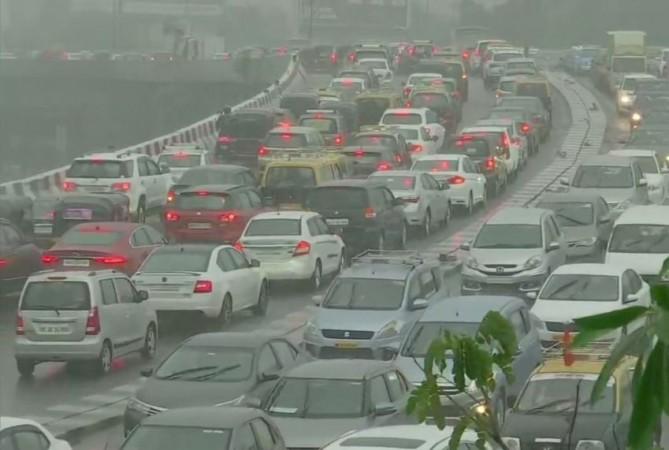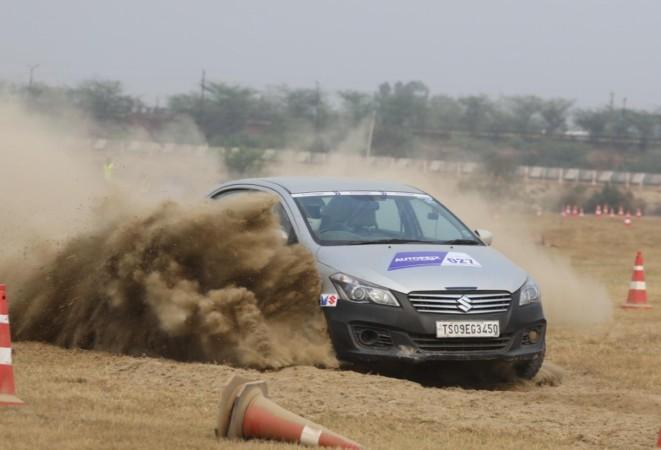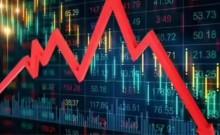
India has slipped into an economic slowdown by the admission of many in the government and as revealed by some key economic indicators. The marked drop in automobile sales for several successive months is only one of the indicators, according to experts. There are many others though the information technology remains the only sector that is bucking the trend. However, Bimal Jalan, a former Reserve Bank of India (RBI) governor, has said the current slump is only cyclical and that the economy could revive in the short term.
Jalan's optimism goes against a nagging fear that the country could slip into a recession if the global factors take a turn for the worse. A recession is defined as an economic contraction for three successive quarters. If the decline in growth rate continues at the current rate, global factors could hasten the slide into a recessionary territory, according to some experts. India's gross domestic product (GDP) growth rate has been slowing for several successive quarters. As the economic activity has contracted, the GDP growth from January to March 2019 slowed to 5.8 percent. It is estimated to have further contracted in the April-June 2019 quarter also.
The equity markets have also been affected by the negative vibes with National Stock Exchange (NSE) benchmark Nifty languishing in the bearish territory after scaling the record high of 12,103 points on June 3. It closed on Tuesday at 10,925 points. The market slide seems to have been hastened by the flight of foreign portfolio investors (FPI) that were jolted by the tax surcharge on the super-rich and a 10 percent increase in public holding of shares to 35 percent announced in the maiden Union Budget of Finance Minister Nirmala Sitharaman.
Job data has been disappointing for Prime Minister Narendra Modi's government, which rode a landslide victory in the April-May general election 2019 to power for the second successive tenure. Estimates show unemployment has surged to the highest in many decades.

The RBI cut the repo rates for the fourth successive time in its last Monetary Policy Committee (MPC) meeting earlier this month in an attempt to infuse more liquidity into the economy. However, the banking sector that has been facing a huge backlog because of rising non-performing assets (NPA) has been slow to transfer the benefits of lower rates to the end customers. RBI governor Shaktikanta Das has not achieved much headway on the matter despite several meetings with bankers.
NITI Aayog CEO Amitabh Kant said at a recent program that too many reforms in a short time have sapped the economy of growth momentum. He cites Goods and Services Tax (GST), Insolvency and Bankruptcy Code (IBC), and Real Estate Regulatory Authority (RERA) among the reforms, even as he leaves out one of the most debilitating measures, which was currency demonetization. He has advocated a focus on structural reforms to improve ease of doing business and global competitiveness.
On her part, Nirmala Sitharaman has been meeting the industry stakeholders after the Union Budget 2019 to find a way to stimulate economic growth. Finance Ministry sources indicate that the government may soon give a booster dose of incentives to the economy to stimulate growth.
Consumption, which is the most important metric of India's economic growth as it forms about three-fifths of the economic activity in the country, has contracted, according to a report on the Livemint website. Domestic car sales during the April to June 2019 quarter fell by 23.3 percent year on year. This is the biggest contraction in quarterly sales since 2004, according to the report. A slowdown in car sales hits upstream and downstream sectors. Vehicle loans growth has slipped 5.1 percent, the slowest in about five years. Two-wheeler sales also have been affected, though not to the extent of car sales, contracting by 11.7 percent during the June 2019 quarter. Still, it is the biggest fall since the third quarter of 2008 financial year, when two-wheeler sales had contracted by 14.8 percent, at the beginning of the financial crisis.

Tractor sales also fell in the April to June 2019 quarter by 14.1 percent, marking the worst fall in nearly four years, the report says. Housing sales have also slowed with the number of unsold units in India's top 30 cities rising to 12.8 lakh from 12 lakh during the year ending by March 2019. The supply metric is skewed by the rise in housing loan disbursal, showing that second- or third-time sales of units are thriving while more new units keep flooding the market. The stagnation in real estate prices is an indication that people, in general, feel they have less disposable wealth. Economy observers also suggest that the 5.3 percent fall in non-oil, non-gold, and non-silver imports during the June quarter is a good indicator of a decline in consumer demand. This is reckoned the biggest contraction in three years despite a 6.3 percent rise during the same period last year. A fall in commercial vehicle sales and rail freight growth also point to the slowdown, according to the report.
Despite the government's Make in India push, the value of new projects announced during April to June 2019 fell by 79.5 percent year-on-year, marking the biggest fall since September 2004. The value of new investment projects during the quarter was estimated at Rs 71,337 crore, the lowest since September 2004. The slowing growth in new projects is believed to be an indicator of the declining faith of businesses in the short-to-medium term economic future. Coupled with the 48 percent drop in projects completed during the period in comparison to the same period last year, makes the picture clearer.
The country's slowdown, experts suggest, is happening in a comparatively benign global environment with the oil prices within manageable limits. However, if US President Donal Trump does push for upping the ante in the Middle East over Iran's nuclear disarmament defiance, the oil could hit $100 a barrel, pushing up the country's import bill and the revenue account deficit. If Chinese President Xi Jinping opts to intensify China's trade war with the US, the global economy could be hit, more seriously, dragging down the Indian economy.











